Welcome to The Year That Was
August 12th, 2019
18 mins 2 secs
Season 1
Tags
About this Episode
Welcome to the The Year That Was: 1919.
I'm so excited to announce this new project. I've always been fascinated by year-by-year approach to history, and I'm thrilled to be taking a close look at 1919. Over the course of the next few months, we're going to look at wars and revolutions, peace conferences and treaties, scientific discoveries and artistic innovations, scandals and triumphs.
The podcast launches September 3rd. Make sure to subscribe now so you don't miss a single episode.
Meanwhile, here are some notes on today's trailer:
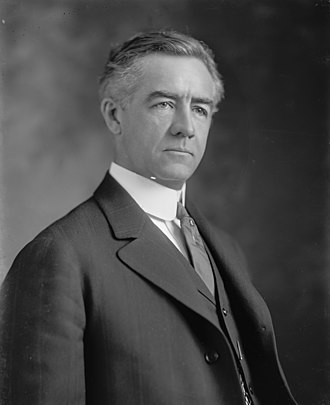
Gilbert M. Hitchcock, a Democrat from Nebraska, served as U.S. Senator from 1911 to 1923 and was Chairmas on the Foreign Relations Committee until 1918. He was a supporter of President Woodrow Wilson and a strong advocate for the League of Nations. In 1919, he recorded a speech on the League as part of a Columbia Gramaphone Company series called "Nation's Forum." You can listen to the full speech on the Library of Congress website.
Nannie and James Pharis told their story about the Spanish Flu Epidemic as part of the Piedmont Social History Project. They were recorded at their home on January 8, 1979. The entire interview is fascinating, and you can hear it and read the transcript on the Going Viral website, a project of the Southern Oral History Program at the University of North Carolina dedicated to documenting the impact and implications of the 1918 flu pandemic. (Scroll down to see the Pharis interview--it's the second on the page.)
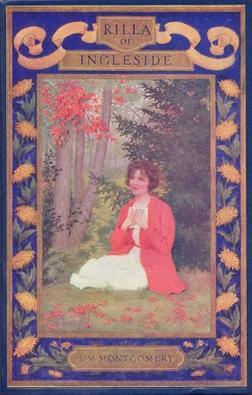
Rilla of Ingleside is the last book in the Anne of Green Gables series by Canadian author Lucy Maud Montgomery. This is the cover of the first edition of the novel. The book was published in 1921, but Montgomery began writing it in 1919 immediately after World War I ended. It is, as best I can tell, the only contemporary account of World War I from the perspective of women on the homefront. Rilla of Ingleside is widely available, including from Amazon and most libraries. You can also listen to a free audio recording by LibriVox, which offers free recordings of books in the public domain. That's where I found my clips of Karen Savage reading the novel. You can find the LibriVox recording here.
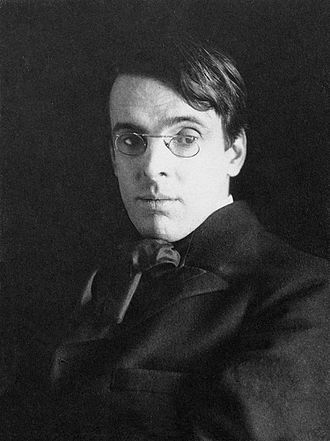
William Butler Yeats was one of the most important poets of his generation. A mystic with a strong belief in the supernatural, he channeled his reaction to current events into powerful symbolic imagery. You can read the entire poem The Second Coming or see actor Dominic West reading it in a powerful performance.
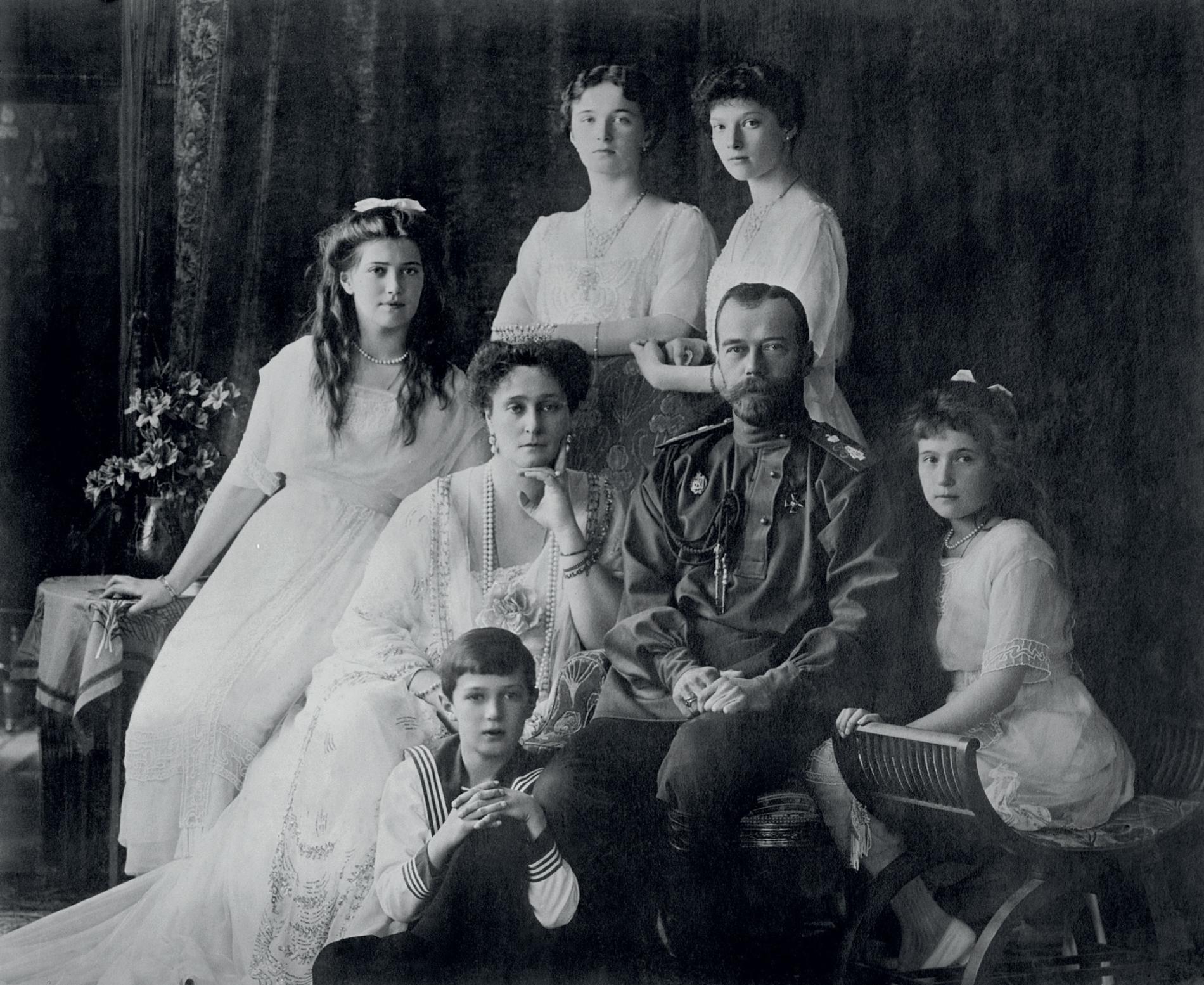
Tsar Nicholas II, ruled as the last autocrat of all Russias but was brought down in 1917 by the Russian Revolution. His entire family, pictured here, were executed by Bolshevik forces. You can see the entire BBC documentary from which I quote on the British Pathe and Reuters Historical Collection website.
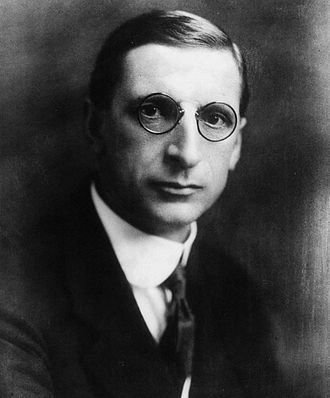
Eamon de Valera dedicated the early part of his life to achieving independence for Ireland from British rule. He fought during the Easter Uprising, served time in British prisons, and was elected president of Sinn Fein and the shadow Irish assembly Dail Eireann. He spent 18 months of his presidency in the United States raising money and lobbying for the Irish cause. During his months in the U.S., he recorded this speech as part of the Columbia "Nation's Forum" series. You can listen to the entire speech and read a transcript on the Library of Congress website.
An unnamed Palestinian man spoke to the BBC in 1936 about life in the British Mandate territory. In 1919, the British took over Palestine and began welcoming Jews with the goal to create a Jewish homeland. You can see the man's entire statement on the British Pathe and Reuter's Historical Collection website.
"How Ya Gonna Keep 'Em Down on the Farm (After They've Seen Paree)" was a 1919 hit with music by Walter Donaldson and words by Joe Young and Sam M. Lewis. You can listen to the entire song by Arthur Fields from an original 1919 78 record on the Internet Archive website.
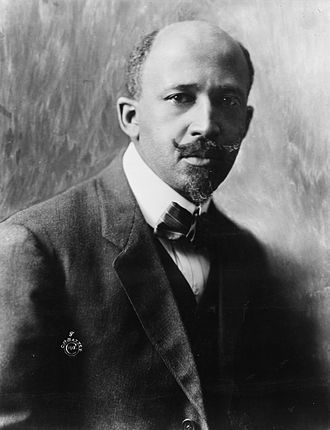
W.E.B. Du Bois was a sociologist, historian, civil rights activist, author, writer, editor and all-around amazing person. He was one of the founders of the NAACP and edited the organization's monthly magazine The Crisis beginning in 1910. He published the essay "Returning Soldiers" in The Crisis in 1919 calling on African-American servicemen returning from war to take up the causes of lynching, disenfranchisement, education and equal rights. You can read the entire essay on the website of Yale University's Gilder Lehrman Center for the Study of Slavery, Resistance and Abolition. You can also hear a longer excerpt from the American Experience documentary The Rise and Fall of Jim Crow.
Sufferin' Till Suffrage is the Schoolhouse Rock recounting of the passage of the 19th Amendment, which granted voting rights to women in the United States. It's a delight. You should go watch it immediately and sing it exuberantly the rest of the day.
"How Are You Going To Wet Your Whistle (When the Whole Darn World Goes Dry)" was one of many songs written in the anticipation of Prohibition, which took effect in January 1920. You can listen to the entire song on YouTube, sung by Billy Murray and uploaded by Bruce "Victrolaman" Young.
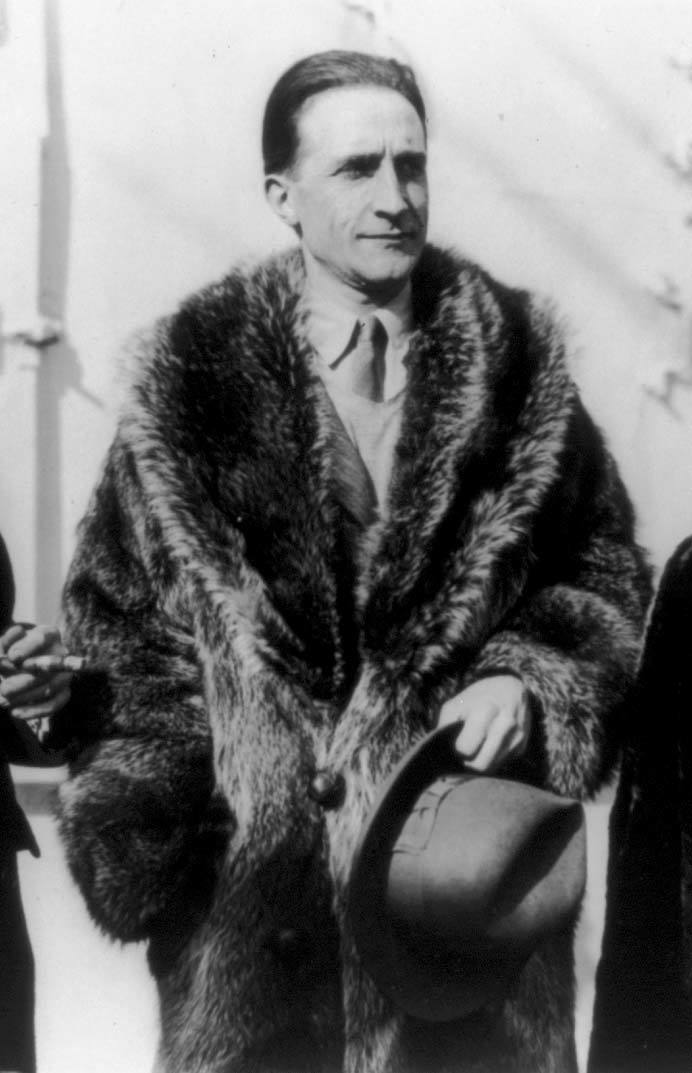
Marcel Duchamp, seen here wearing an absolutely enormous fur coat, repeatedly transformed the art world without ever seeming to care about art--or anything else, for that matter. You can see him discussing his career, including the Dada movement, in this 1956 interview.
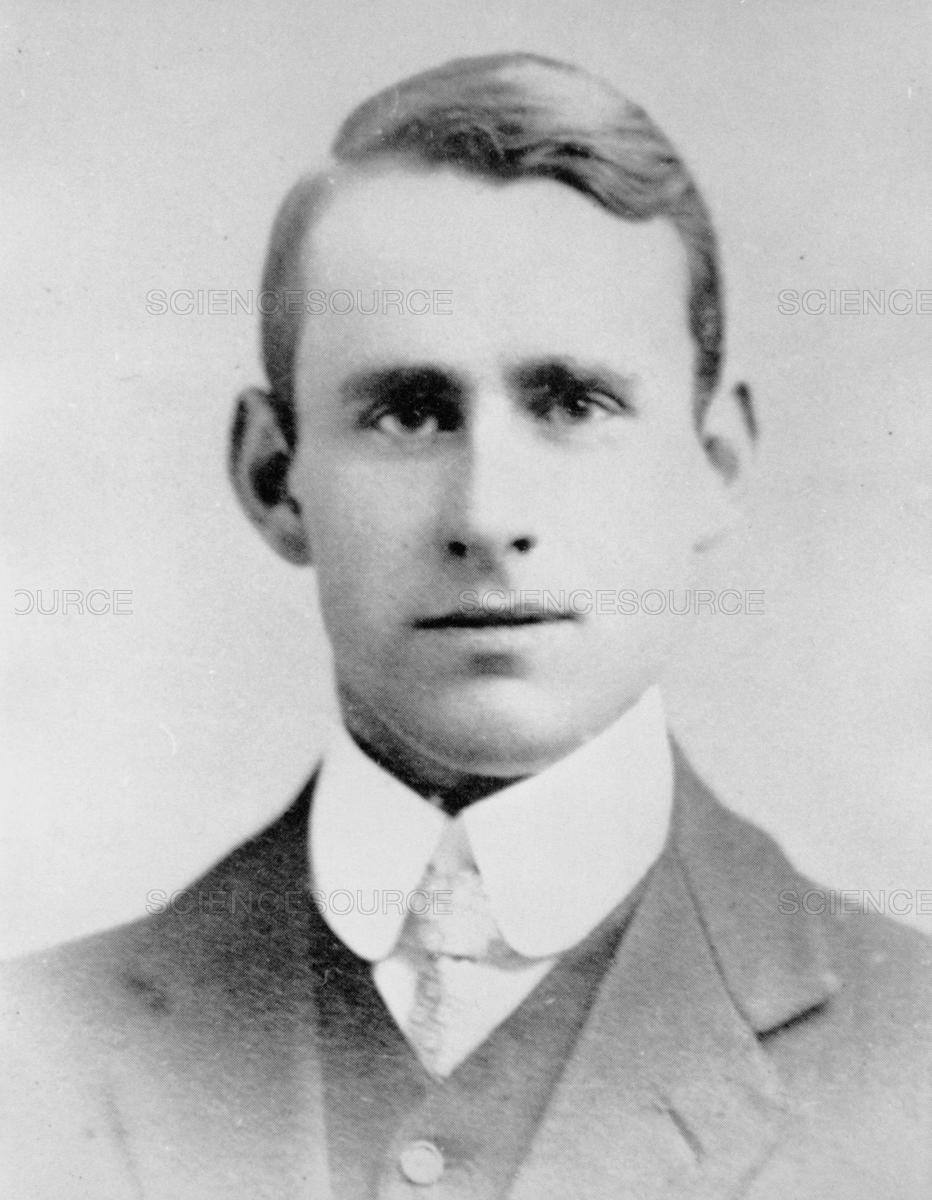
Arthur Eddington, British astronomer and physicist, was one of the first scientists outside of Germany to understand and appreciate Albert Einstein's Theory of General Relativity. He decided to prove the theory during a solar eclipse in 1919. You can see the clip from the film Einstein and Eddington in which David Tennant plays Eddington and explains Einstein's understanding of gravity with a tablecloth, a loaf of bread, and apple. (The dinner-party explanation begins at about 1:50 minutes.)
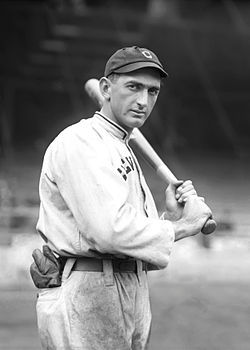
Shoeless Joe Jackson was an outfielder and power hitter who was caught up in the Black Sox scandal. Jackson admitted to agreeing to take money to throw the 1919 World Series, although the circumstances have never been fully explained. You can see the clip from the 1988 movie Eight Men Out in which Jackson, played by D. B. Sweeney, confronts a young fan on the courthouse steps. (The key scene begins at about 1:45 minutes.)
Support The Year That Was